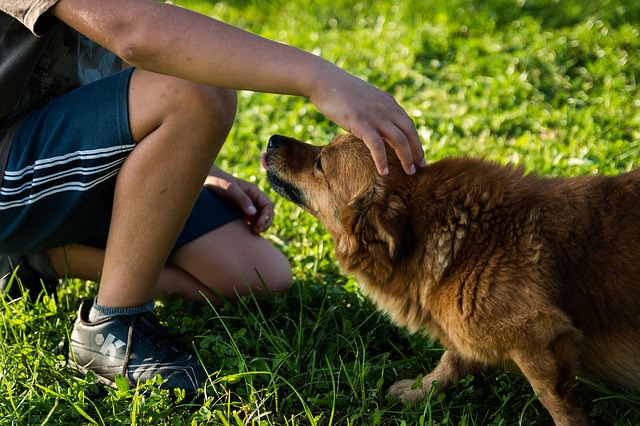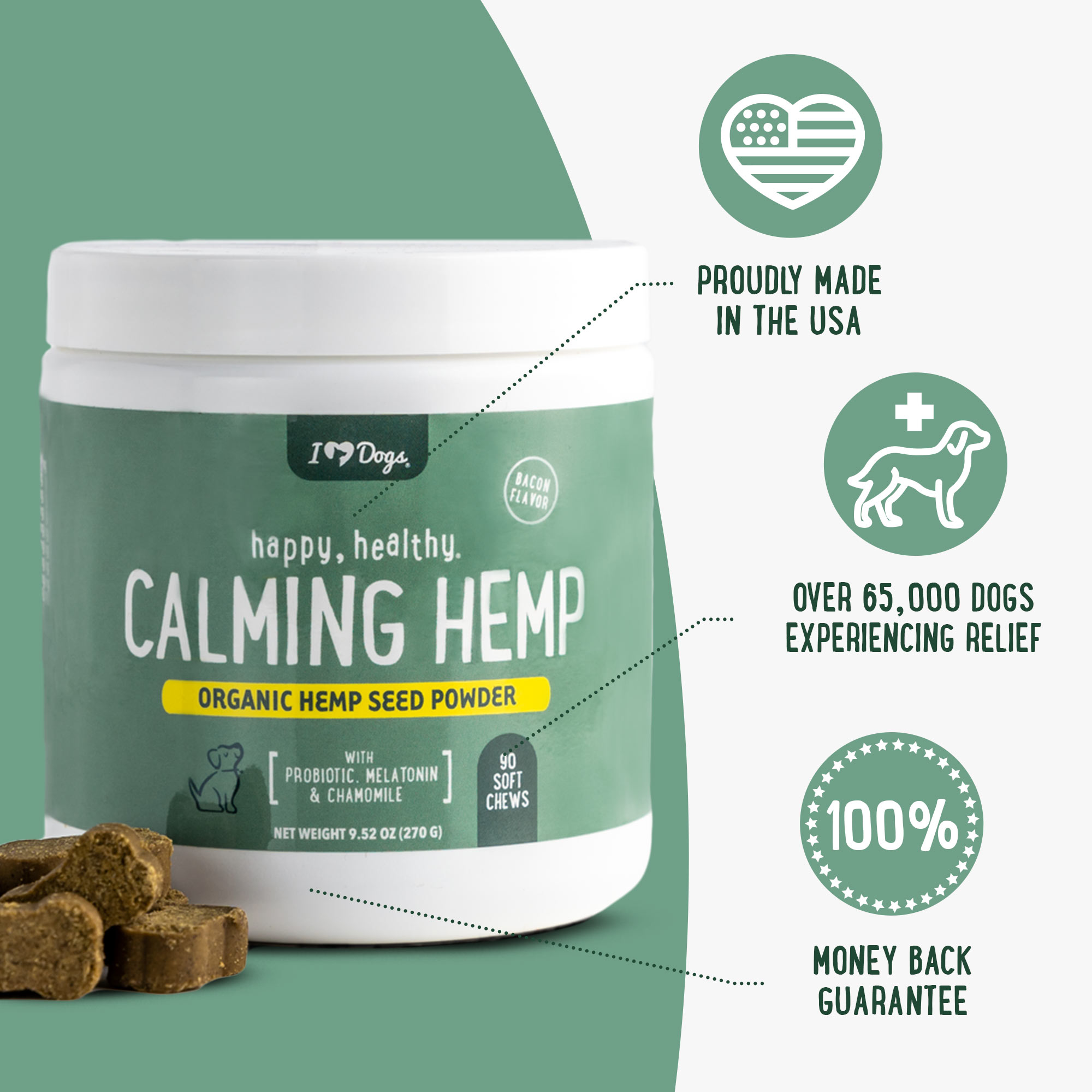New Year’s and the 4th of July are not times of celebration for most dogs! We all deal with stress from time to time, and our pets are no different. While some dogs are more anxious than others, most dogs will have at least one thing that causes them stress, whether it’s fireworks, a trip to the vet, or moving to a new house. There are medications that can help, but you might want to start with something a little milder first. Here are seven natural ingredients known to help calm anxious dogs.
(As always, consult with your vet before introducing anything new into your dog’s diet.)
#1 – Valerian Root

Valerian is a sedative herb that relieves tension, anxiety, and over-excitability in dogs. Valerian can be bought dried or in capsule form and given to the dog orally, wrapped in a piece of cheese, or with a treat. Our favorite option for easy administration would be a soft chew. Give it to the dog before situations that tend to cause anxiety and over-excitability in your dog.
#2 – Melatonin

Melatonin is a hormone that naturally rises in the bloodstream when animals sleep. Giving it to them when they are awake can help calm them down during stressful situations. It may be especially effective in dogs with separation anxiety issues, as its calming effects may last up to 8 hours. Be sure to read the ingredients before sharing your melatonin – it may contain Xylitol or other ingredients that are toxic for dogs.
#3 – Lavender (Scent)

You probably already know that the scent of lavender helps you to relax and fall asleep, but did you realize it can have the same calming effect on your dog? The scent of lavender actually reduces the body’s production of cortisol, the stress hormone, and it doesn’t have the same sedative effects of some of the other ingredients on this list. A drop or two of lavender oil in a place where your dog can’t ingest it will help relieve their anxiety.
(NOTE: Lavender is on the ASPCA’s poisonous plants list. We do not recommend keeping the plant where your dog can reach it.
#4 – Passionflower

Passionflower has been used since the mid 1500s as a sleep aid and sedative. Studies have shown that it can actually lower your brain activity and boost levels of GABA, a feel-good chemical. In humans, it’s been shown to be as effective as benzodiazepine medications such as Valium and Xanax in treating anxiety. It also has less of a sedative effect than other herbs. This can be a great option for highly anxious dogs.
#5 – Hemp

Hemp, the plant from which Hemp is derived, can help promote calm while also delivering omega fatty acids to improve your dog’s heart and skin health.
#6 – Chamomile

If you’ve ever suffered from insomnia, you’ve probably tried chamomile tea to help you sleep. Chamomile calms the nerves and induces sleep. It can also calm the stomach and ease digestive problems. You can give chamomile tea to your dog or soak a dog treat in the tea. Another option is a soft chew that contains chamomile.
#7 – YOU
Our last suggestion and final ingredient is you! If you can’t physically be with your dog during a stressful time, leave an object that smells like you with them. Some suggestions might be a shirt, a sock, or a pillowcase. Dogs are much more scent-driven than humans, and smelling your unique scent will help calm their anxiety.
All Natural Anxiety Relief
Did you know you can get several of these ingredients, plus a few more, in our iHeartDogs 9-in-1 Calming Chews for Dogs? They’re formulated to relieve your dog’s fireworks anxiety, nervousness, hyperactivity, tension, or stress related to traveling, thunderstorms, fireworks, vet visits, introducing new pets, or a change in their routine.
High-potency natural ingredients are properly formulated for optimal results, and dogs love the flavor of these soft chews! It’s gentle enough to be used as a daily supplement and powerful enough to work as needed in stressful situations. And if that isn’t awesome enough, each purchase feeds 7 shelter dogs!
These statements have not been evaluated by the Food and Drug Administration. This product is not intended to diagnose, treat, cure, or prevent any disease. The information on this website is not intended to replace a one-on-one relationship with a qualified health care professional.
(H/T: WikiHow, Natural Dog Health Remedies, Food Matters, Livin3, PetMD, Can I Give My Dog)

 Toledo, United States.
Toledo, United States.